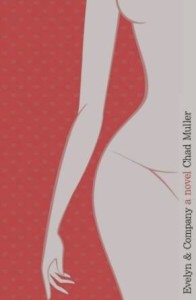I was a reader before I became a writer and I do not recall when I have ever wanted to be anything else but a writer.
There is nothing I prefer to a good book. Because reading that good book allows me to experience a world I would not have otherwise been able to experience. For me, those experiences — virtual though they may be — are just as real as eating a sweet, juicy apple or touching dew on a leaf or feeling the misty fog on the skin.
As a reader, I demand craftsmanship from authors. I demand from them a world of quality, peopled by characters of quality. For my life is immeasurably enriched by that craftsmanship and I want my life to be immeasurably enriched.
And that doesn’t mean the book in my hand has to be great literature (whatever that is). But it does have to be an entertaining story, even if the author of that story is no longer remembered by the mass of readers. In the end it is the story that matters, not the one who wrote it. Just as it is the chair or watch or vase or painting that matters and not the one who made it.
“Sredni Vashtar” by Saki has been my companion for 50 years. “Silent Snow, Secret Snow” by Conrad Aiken, the same. I have read The Hobbit by JRR Tolkien a half-dozen times and wept every time over Thorin Oakenshield’s death. I laughed all the way through The Diary of a Nobody by now forgotten George and Weedon Grossmith. And was so moved reading Tomorrow and Tomorrow by Hunt Collins (aka Evan Hunter/Ed McBain), some 50 years ago, the title and story have never left me — even though I forgot the author’s name. I now own all three paperback printings just to have the different cover art.
What distinguishes the above books from so much of what is self-published today is craftsmanship. Although the Big 5 have published their share of books lacking in this department as well. The above books were written by authors who cared to give us, the reader, a tale that was well-written — even in a 50 cent paperback.
I love the technology that has enabled everyone who wants to tell a story to get that story out to thousands of readers and maybe even make a buck doing so. But I also hate that same technology for it has unleashed upon the reader a veritable tsunami of cheap and shoddy goods.
The publishing industry is big business and I don’t like big business. It gives us uniformity instead of something unique and creative, because they can make money with uniformity. The unique and creative may not help the bottom line. The one thing in the publishing industry’s favor is it does cut down on the number of bad books published. Notice I wrote cuts down. The Big 5 publish plenty of bad authors and books because they make lots of bucks for the publisher. And in the end, publishing is a business — the point of business is to make money.
The reader, though, is also partly to blame for this tidal wave of bad writing. We are to blame because we read the stuff. We tolerate the bad writing. It is as though we are addicted to toaster pastries and have forgotten what a good bakery danish tastes like. When reviewers write the book needed an editor but that’s what we get with these Kindle books, there is something wrong with this picture. And what is wrong is the writer was lazy and we, the reader, let him or her get away with being lazy.
Or when a supposedly #1 Amazon best selling author doesn’t know the difference between telling and showing, we, the reader, have failed ourselves and that author by allowing that author to foist on to the world his or her bad writing. We the reader did not demand craftsmanship from the author.
I love the indie publishing revolution. I’m part of it. I love sticking it to big business and letting the marketplace decide. As a reader, when I look for an indie book to read I read the 1-star reviews. I don’t care about the 5- or 4-star reviews, because it is the 1-star reviews which tell me if the book is riddled with typos or is flat out poorly written. The 1-star reviews tell me if the author took pride in his or her work to have it proofread or bothered to learn the craft of telling a good story so I’ll remember it until the day I die. So I’ll remember the story long after I’ve forgotten the author.
We readers need to demand quality writing from authors. We authors need to take pride in our work and respect our readers and give them a well-crafted story. A story they may remember for all of their days, even if they forget our names.
